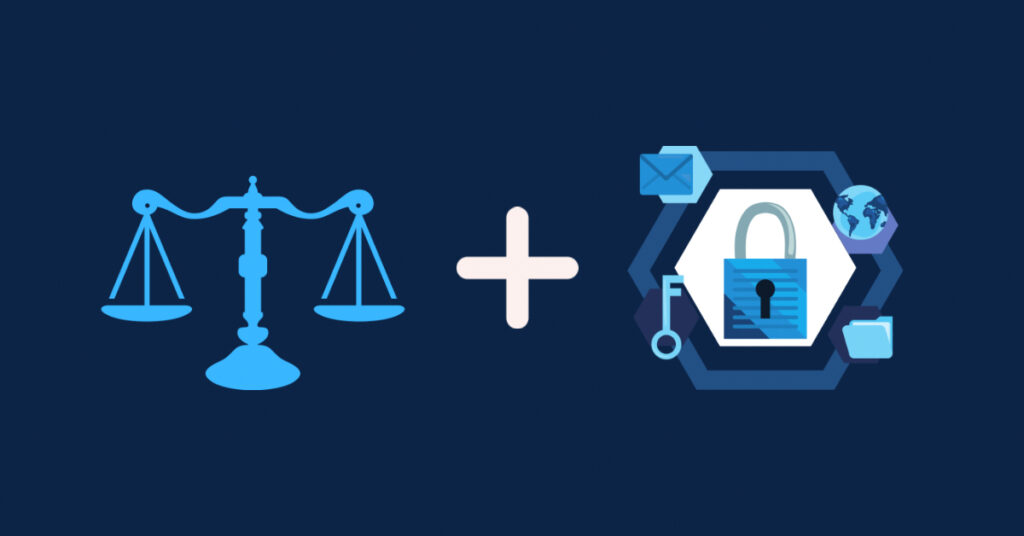In today’s digital age, law firms are managing more data than ever before, from sensitive client information to confidential case files. It’s important to keep clients’ trust and avoid legal and financial problems by making sure this data is safe and correct.
Law firms can better manage and protect their data by following a number of best practices. In this article, we’ll talk about five key best practices in the legal field that have been shown to work.
Our goal is to give you advice that you can use right away to improve how your law firm handles data and keeps it safe. Before we dive into the five best practices for law firm data security and management, let’s discuss what data management is.
What is data management?
Data management is the process of collecting, storing, organising, maintaining, and using data effectively and efficiently. It involves putting in place policies, procedures, and tools to manage data from the time it is created until it is thrown away.
In a law firm, data management means keeping track of client and case files, financial records, and other important documents. This can be done with a case management tool or the old-fashioned way. It involves keeping track of who has access to the data, how it is used, and how it is protected from unauthorised access or loss.
Why is data management important to a law firm?
As a law firm, you deal with sensitive and confidential information. It is vital to keep this information safe and secure.
Everything, from legal documents to communications with your clients, needs to be kept secure and protected from unlawful access. Poor data management can lead to data breaches and loss of confidential information, which might result in legal and financial consequences.
You are in charge of taking all the necessary steps to protect your clients’ data and keep their trust.
To make sure that data is managed and kept safe, effective policies and procedures must be put in place. Here are some of the best practices to implement.
- 1. Encryption
Encryption is a way to code information so that only someone who knows how to unlock it can read or use it. It’s like putting your information into a lockbox, and the only way to open the box is with the right key.
Encryption is crucial for law firms because it helps prevent data breaches and protects against cyberattacks. Even if a hacker manages to access your firm’s data, they won’t be able to read or use it because it’s all jumbled up and indecipherable without the key.
Here are some of the best ways for law firms to use encryption to improve data management and security:
-
- Use strong encryption: Use strong encryption algorithms to ensure that data is secure even if it is intercepted or stolen. Avoid using weak encryption algorithms or homegrown encryption solutions.
-
- Use key management: Implement key management practices to ensure that encryption keys are properly managed and protected. This includes using strong passwords, storing keys in secure locations, and rotating keys regularly.
-
- Regularly test encryption: Regularly test encryption to ensure it works adequately. This includes conducting penetration testing and vulnerability assessments.
-
- Update encryption software from time to time: Regularly update encryption software to ensure that it is up-to-date with the latest security patches and that any vulnerabilities are attended to promptly.
2. Multi-Factor Authentication
Multi-factor authentication is becoming increasingly important for law firms’ data management and security. This is because it adds an extra layer of safety to protect sensitive information from cyberattacks.
So, what is multi-factor authentication? It’s a security system that requires two or more ways to prove who you are before letting you into a system or data.
By implementing multi-factor authentication, you can significantly reduce the risk of a data breach or unauthorised access to sensitive information.
Here are some best practices for Multi-Factor authentication (MFA) to enhance data management and security in your law firm;
-
- Use strong authentication factors: Use strong authentication factors like biometric data, smart cards, and hardware tokens. Avoid using weak authentication factors such as SMS-based authentication.
-
- Require MFA for all users: Require MFA for all users, including employees, contractors, and clients. This helps ensure that only legitimate users have access to sensitive data.
-
- Regularly review MFA logs: Regularly review MFA logs to identify any unlawful access attempts and investigate them promptly.
-
- Conduct regular MFA testing: Conduct regular MFA testing to ensure that the system is working well and that there are no vulnerabilities that could be exploited.
3. Limit Access To Sensitive Data
Just like Digitslaw allows you to limit the number of users that can access certain data on your app, limiting access to data is essential to ensure that only approved personnel can access it.
Hackers often target law firms as they know they have valuable information. By limiting access to sensitive information, you can reduce the risk of data breaches and improve data management and organization within your firm.
Here are some best practices for limiting access to data;
-
- Role-based access control: Use a role-based access control model to limit access to data based on an employee’s job responsibilities. This ensures that employees have access only to the data they need to perform their job functions.
-
- Password management: Implement strong password policies, such as requiring complex passwords and regular password changes. This helps prevent unauthorized access to data.
-
- Regular audits: Conduct regular audits of access permissions to ensure that employees have access only to the data they need. This can help identify any unauthorized access and limit the risk of data breaches.
-
- Monitoring and logging: Implement monitoring and logging tools to track access to data and detect any suspicious activity. This can help prevent data breaches and identify potential security incidents.
Ultimately, limiting access to data is crucial to protect the privacy of your clients, prevent data breaches, and improve data management.
Law firms should always put in place policies and procedures for data access to protect their data.
4. Avoid Phishing Emails And Links
Phishing emails and links can pose a big risk to data security and do a lot of damage to your law firm’s reputation. They are a common way for hackers to gain access to sensitive information.
They can send an email that looks legitimate but contains a link to a fake website or attachment that installs malware into the computer. Once the malware gets installed, hackers can gain access to sensitive information such as client files, financial information, and confidential communication.
You have a legal obligation to protect client data. Breaches in data security can lead to legal action and a loss of trust from clients. Your clients trust you to keep their information confidential and secure, and a breach in data security can damage that trust.
Below are some best practices for avoiding phishing emails and links in law firms to enhance data management and security;
-
- Verify the sender: Verify the sender’s email address and name before opening an email. Check for any suspicious or unusual elements in the email address, such as misspelt words or extra characters.
-
- Beware of urgent or threatening language: Phishing emails often use urgent or threatening language to create a sense of urgency and prompt the recipient to take immediate action. Be wary of emails that use language like “urgent” or “immediate action required”.
-
- Do not click on links: Avoid clicking on links in emails from unknown or suspicious senders. Instead, type the URL directly into the web browser or use a bookmark to access the website.
-
- Hover over links: Hover the cursor over a link to preview the URL before clicking on it. If the link does not match the preview, do not click on it.
-
- Do not download attachments: Avoid downloading attachments from unknown or suspicious senders. If an attachment appears important or necessary, verify the sender and the attachment’s contents before downloading it.
-
- Use security software: Use security software, such as anti-virus software and firewalls, to detect and block phishing emails and links.
By implementing these practices in your firms, you can avoid phishing emails and links and protect sensitive information from cybercriminals.
5. Train Your Employees Regularly.
Training will help your employees understand how important it is to protect data and what could happen if security is broken. It will also make them care more about data security and be more careful in their daily work.
By teaching your employees about data management and security, you can make sure they know how to protect sensitive information and have the skills to do so.
It will also equip them with the specific tools and techniques they need to keep data secure. For example, they can learn how to manage passwords, spot and avoid phishing attacks, and handle and store sensitive data in the best way.
Here are a few best practices for employee training you can adopt as a law firm. These training sessions can be conducted in-person, online, or through a combination of both;
-
- Mock phishing exercises: Phishing attacks are common ways for cybercriminals to access sensitive information. Conducting mock phishing exercises can help employees detect and report suspicious emails, which can help prevent data breaches. These exercises can be conducted periodically throughout the year.
-
- Regular reminders of data security policies: It is important to provide employees with constant reminders of data security policies. This can be done through email reminders, posters in the workplace, or other forms of communication.
-
- Use real-life examples: Using real-life examples of data breaches can help employees understand the impact of poor data management and security practices.
-
- Tailor training to different roles: Different roles within the law firm may require different data management and security responsibilities. It is important to tailor training to each role.
-
- Monitor and evaluate training: Monitoring and evaluating training sessions can help identify areas for improvement and ensure that employees are retaining the information. You can do this through surveys, quizzes, or other forms of assessment.
Implementing these practices will help in ensuring that your employees are well-trained in data management and security, and have the tools and knowledge they need to protect sensitive information, which can help prevent data breaches and protect sensitive information.
Final Thoughts
As technology advances, you must stay up-to-date with emerging trends in data management security.
Because sensitive client information and confidential case details are at stake, you need to use modern tools like case management legal software and these best practices to protect against security breaches, data loss, and unauthorized access.
It is essential to remain vigilant and proactive in the face of ever-evolving cyber threats and prioritise the protection of sensitive information.







